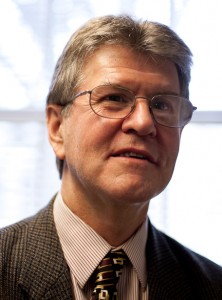By Jeff Brumley
Pope Francis I is continuing to catch a lot of flak from Turkey for his use of the term “genocide” in describing the Ottoman empire’s slaughter of 1.5 million Armenians in 1915.
But the pontiff isn’t alone in describing the massacre of the Christian minorities: Baylor University is right there with him.
“That particular act of genocide is one of the greatest acts of religious persecution that ever happened in history,” said Philip Jenkins, professor of history at Baylor and co-director of its Program on Historical Studies of Religion.
Unlike Francis, Jenkins said the university took no heat for its March 16-17 — and unapologetically labeled — symposium titled “Remembering Genocide,” which was to commemorate the 100-year anniversary of the Armenian killings.
One of the guest lecturers for the event handled some pointed questions, probably from pro-Turkey audience members, Jenkins said.
Controversy erupts
But the Vatican hasn’t gotten off so lightly. The pope’s Sunday comments in Rome came during a highly publicized Mass held to commemorate the slaughter.

Francis said humanity suffered three huge tragedies in the previous century. “The first, which is widely considered ‘the first genocide of the 20th century,’ struck down your Armenian people,” CNN reported Francis saying in reference to a previous statement by Pope John Paul II.
Turkey, which had lobbied the Holy See to avoid using the term “genocide” in the service, has now pulled its ambassador from the Vatican and warned the pope not to refer to the atrocities as “genocide” again.
But Francis was right to call the massacre what he called it, just as Baylor was with its March symposium hosted by its Institute for Studies of Religion, Jenkins said.
‘A long way to go’
The ISR and Baylor President Ken Starr are highly committed to issues of religious liberty. The timing and naming of the event were meant to reflect those values, he said.
“An absolute right is not to be massacred, which comes before all other rights,” Jenkins said. “If we couldn’t commemorate [Armenia], we couldn’t commemorate any genocide.”
Jenkins said Baylor planners were somewhat disappointed that attendance wasn’t as high as it could have been for the symposium. He attributed that to the timing being just after spring break and an overall poor public understanding of the historical event.
“We have a long way to go in public education,” he said.
Communities wiped out
But it also reflects how much the Armenian genocide has fallen out of public memory.
“This was a great act of persecution against Christians,” he said, explaining that Assyrian, Catholic, Chaldean, Greek and Orthodox Syrian Christians were targeted for extinction by the Ottomans. There were also some Protestant victims, Jenkins said.

“When it happened, it galvanized all American Christians,” he said. “Baptists and Catholics organized relief for the Armenians.”
The fact that it has since dropped out of memory is the most disturbing aspect of the genocide, Jenkins said. Even Hitler famously reassured his generals their war crimes would be forgotten just like the Armenian genocide had been.
“A lot of Americans find it hard to say who Armenians are, but many of the places where the crimes happened had been Christian locations from the second century to 1915,” he said. “Some of them had bishops in succession to apostolic times.”
Most of those communities are now simply gone, he said.
‘Very few exceptions’
Turkey denies that genocide occurred, and instead says hundreds of thousands of Armenians and Turks died in warfare.
But Jenkins disputes Turkish claims that the atrocities did not constitute a genocide, which Dictionary.com defines as “the deliberate and systematic extermination of a national, racial, political, or racial group.”
The term “genocide,” Jenkins said, was invented specifically to describe the Armenian event. There was no name to describe such an atrocity beforehand.
Most historians and other scholars “with very few exceptions” would say it’s a genocide, he said.
“Yes, it’s a genocide.”
Jenkins said the pope’s use of the term is likely influenced by the spate of other anti-Christian massacres in places like Iraq, Syria, Lybia and Kenya.
“I think persecution is just on the mind of any Christian with an international outlook.”
